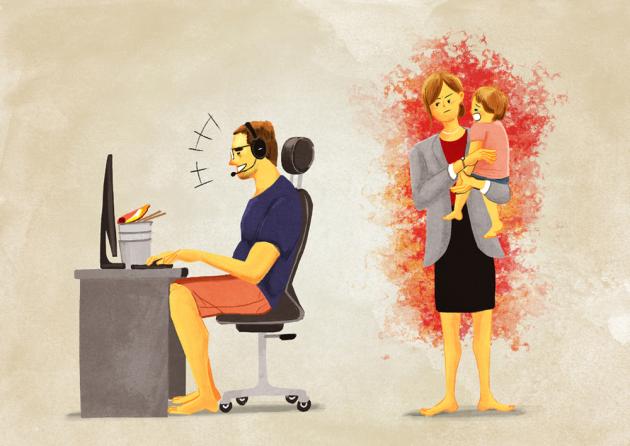Shock rippled through society in 2010, when a 19-year-old adolescent died suddenly while playing games at an internet café for 12 hours straight. Another couple let their infant die from malnutrition after playing Starcraft for 12 hours at a time daily. In 2005 alone, there were more than 10 cases in Korea where people died from playing games for an extended period.
In light of increasing studies showing the negative impact of gaming addictions all around the world, the World Health Organization earlier this year classified the excessive use of games as a mental disorder according to the International Classification of Diseases (ICD), sparking fierce debate between mental health professionals and the gaming industry.

Professor Lee Hae-kook from the Catholic University of Korea, Uijeongbu St. Mary’s Hospital, Department of Psychiatry told Korea Biomedical Review that Korea has one of the highest accessibility in the world to games, and that the classification of excessive gameplay as a disorder would help, not hurt, those who need support the most.
What is gaming disorder?
According to the ICD, which has not yet been finalized, gaming disorder refers to “persistent or recurrent” gaming behavior where one has “impaired control” to the point where it takes priority over other daily activities, and the behavior escalates despite adverse consequences.
Although yet not finalized, psychiatrists may diagnose the disorder if the behavior persists for at least 12 months in line with the criteria, although the diagnosis may be made earlier if symptoms are severe and all requirements are met.
In Korea, gaming has been deeply ingrained in the culture. Children and adolescents are exposed to games at an extremely young age. Internet cafes, called PC bang here, are around every corner and in every building in one of the most digitally connected countries in the world.
The unique free-to-play business model employed by Korean gaming companies also makes gameplay rampant and addictive, according to Lee.
“Usually, games developed by Western countries are based on hardware such as console boxes such as Nintendo or Playstation,” Professor Lee said. “Online games have a different benefit model – companies introduce the game for free. They earn money not by selling the game, but from purchasing items. The companies, therefore, make people keep playing – for hours at a time. They’re promoting older individuals playing longer and more.”

Game revenues from Asian countries such as China, Japan, and Korea make up 50 percent of the world’s gaming market, Lee added, noting that the high population density among other factors causes intense competition and stress that makes people turn to games as stress relief.
“An aspect of Korea - especially for adolescents and kids - is that people are exposed to intense competition for [academic] success. At the same time, stress outlets such as leisure or free time are rare, making people vulnerable and susceptible to games and Internet cafes. There’s huge accessibility, and it’s a unique phenomenon in Korea,” Lee said.
Gaming disorder like alcohol use disorder
Despite the outcry from the gaming industry, Professor Lee noted that gaming disorder should be classified as a mental health disorder adding that the disorder is much like alcohol addiction. Many people drink alcohol, but only a small percentage develop a substance use problem.
“A mental disorder refers to dysfunctional behavior or mental activity that falls out of the range of normal behaviors. Addictive behaviors such as alcohol dependency are also defined as a substance abuse disorder,” Lee said.
According to the psychiatrist, substance addictions were only regarded as moral or personality problems until research showed that the substances continually released dopamine in the brain while also damaging the decision-making process.
Starting in 2000, many types of research began to investigate the effect of online game addictions in light of the digital boom, eventually leading to gaming use to be classified in the DSM-5. The classification led to more studies being conducted on the excessive use of digital devices on health.
“Researchers began looking at the primary mechanisms or guiding principles of gaming addiction based on the brain, clinical studies, and epidemiology studies. They then finally visualized and realized that the same mechanism of the pathology of clinical symptoms was found in gaming disorders, leading it to be introduced in the DMS-5,” Lee said.
Addiction is defined by the agent, host, and environment. In the case of gaming disorder, the agent is the game, the gamer is the host, and the environment is enormous accessibility in Korea, according to Lee.
Even though accessibility is high, many people can control their use of games combined with parental and peer support. However, emotional and impulse problems such as anxiety and depression make people vulnerable to addiction. Vulnerable groups who have negative familial, environmental, or psychological factors can also make gaming a full-blown addiction.
“Environmental factors play a huge role, and Korea is at a bigger risk for addiction than other countries,” Lee said, “And the health problem is going to get bigger and bigger since the digital market is increasing across the world.”
Regarding the backlash from the gaming industry, Lee noted that in many cases, they fear that they would have to share responsibility for the problem.
“The gaming industry tries to pressure the government and promote positive public opinion of gaming. You see an advertisement for games in Korea everywhere – on TV, on the subway, you name it,” Lee said.
“They are afraid that they’ll have to share responsibility for the public health problem. There might be pressure to protect or support gaming addiction, just like how tobacco companies have to deny the possibility of addiction to keep selling their products. It’s the same situation- they’re going to try to deny the possibility of the problem.”
Classification provides solution, not problem
Despite the denial and protests, Lee believes that the WHO designation is going in the right direction, and going to produce the right solutions for those that are addicted.
“Including gaming disorder into the ICD-11 as a formal disorder provides several benefits. For one, we don’t need to create a new system– we can apply it to the existing health system,” Lee said.
“That means we won’t have to funnel in more money to categorize or create a new concept – we would just be identifying the health problem related to the excessive use of gaming and electronic device and add an option to benefit people’s health,” he added.

